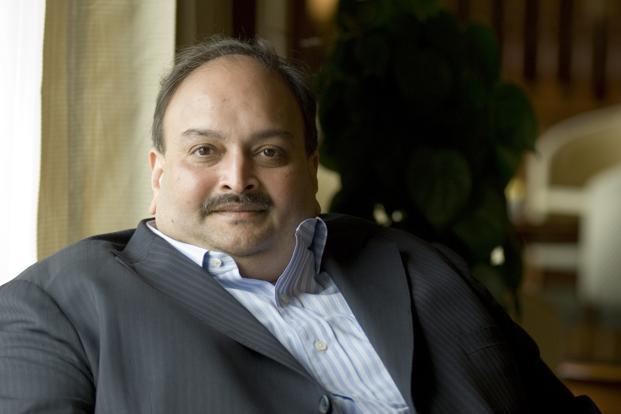The Antigua and Barbuda government says it will extradite the Indian-born billionaire, Mehul Choksi, but only after he has been able to have his matter dealt with by the courts here.
India and Antigua do not have a bilateral extradition pact but New Delhi has been trying to bring back the diamond billionaire from Antigua under a law of the island it says that allows St. John’s to send back a fugitive to a designated Commonwealth country.
Choksi was granted citizenship of Antigua and Barbuda in 2018 and he took the oath of allegiance to that country on January 15 last year. Nearly two weeks later, on January 29, the Central Bureau of Investigation (CBI) in India filed a case and started investigating him and his nephew Nirav Modi.
Speaking on his private radio station over the weekend, Prime Minister Gaston Browne told listeners that when Choksi was granted citizenship officials in India reported that he had no criminal record “and they did not report that he was wanted for a financial crime so he got through
“But the reality is that his citizenship will be revoked and he will be repatriated to India so there is recourse. It is not a case where we are choosing to provide any safe harbour for criminals and persons involved in financial crimes,” Browne said.
He said that he wanted the legal process to take its course, adding “I don’t want to go any further, there is due process and he has his matter before the court. As we said to the Indian government the criminals have fundamental rights too.
“And Choksi has a right to go to court and defend his position. But I can assure you that after he would have exhausted all his legal options he will be extradited, that’s the reality of it,” Browne added.
Earlier this month, St. John’s took offence to a statement made by India’s Finance Minister Nirmala Sitharaman regarding the island’s Citizenship by Investment Programme (CIP).
Indian media reports quoted the finance minister as saying that several jurisdictions allow “economic offenders to use investment-based schemes to obtain residence or citizenship to escape from legal consequences and underlined the need to deal with such practices”.
itharaman is reported to have drawn attention to the case of Choksi, who, it is claimed, “surrendered his Indian passport to become a citizen of the Caribbean country Antigua and Barbuda under its Citizenship by Investment (CIP) scheme”.
In a statement, the Ministry of Foreign Affairs said it had sent a diplomatic note to the Indian government making it clear “that, contrary to the Honourable Minister’s claim, Mr. Choksi did not “surrender his Indian passport to become a citizen of Antigua and Barbuda under its Citizenship by Investment (CIP) scheme”.
It said the facts are that Choksi applied for Antigua and Barbuda Citizenship by investment and was subjected to vetting of his background by Interpol which was provided with written and official clearance from the Police authorities in India, attesting that he had no criminal record and was not wanted or being investigated for any crime.
Under the CIP, several Caribbean countries, including Antigua and Barbuda, provide citizenship to foreign investors in return for making a substantial investment in the socio-economic development of these countries.




